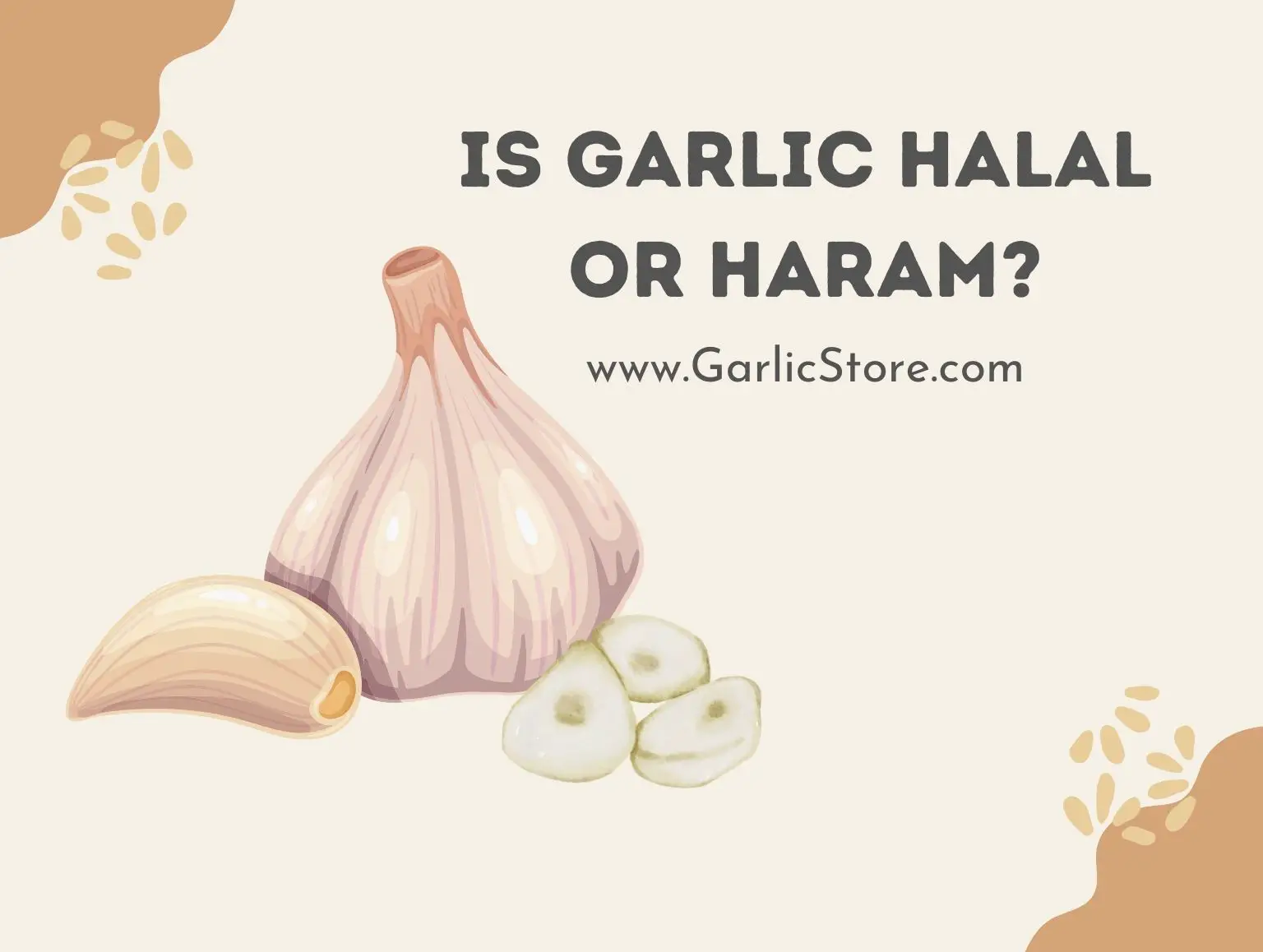Despite being a small vegetable, garlic enjoys remarkable popularity. While it may not deter vampires or bring fortune, its swift ability to convert any dish into a nutritionally rich and fragrant gastronomic delight cannot be denied. Garlic hails from the allium family and is closely related to onions, chives, and leeks. It is highly valued for its unique flavor and strong yet zesty smell.
Garlic is considered a superfood due to its numerous proven health benefits. This herb also adds a distinctive flavor to foods. So whether you are preparing stew, soup, or curry, garlic is an important ingredient in it.
But is garlic haram or halal? This is one of the most asked questions from those new to Islam. This article will go over whether garlic is halal or haram to help you make better-informed decisions.
What Is the Origin of Garlic?
Garlic is a small bulbous vegetable that averages about 60 grams in weight. Each bulb consists of multiple separate cloves that are enclosed in a papery coat that comes in an off-white or pinkish hue.
Garlic is native to northeastern Iran and central Asia but is now grown globally. China is the leading producer accounting for over 75% of world output. Garlic can be consumed raw, cooked, dried, or even in powder form.
What Do the Terms Halal and Haram Mean?
Halal is an Arabic word that means lawful or permitted. With regard to food, halal is the dietary standard as established in the Quran – the Muslim holy scripture. Haram is the opposite of halal, meaning prohibited or unlawful.
Is Garlic Halal or Haram?
In its essence, the vegetable that is garlic is absolutely lawful for Islam believers to consume as food, regardless of whether you wish or choose to eat it raw or cooked. What is discouraged and prohibited is going to the masjid of Allah after eating garlic.
The prophet said that one who eats this offensive plant should not approach the holy mosque in one hadith. Instead, they should keep away from the mosque and stay in their house until the odor dies. It is makruh (disliked) to go to the mosque after eating raw garlic.
Why Is It Prohibited to Eat Garlic Before Going to the Mosque?
Prophet Muhammad disliked eating foods that have an unpleasant smell, like raw onions, garlic, leeks, and radish. According to a hadith narrated by Ibn Maajah, the angels are offended by the same things that offended the sons of Adam. Therefore, the prophet forbade eating, and those who ate it should stay away from the mosque as the angels are harmed by its pungent smell.
Respectfully, one should thoroughly cleanse their breath because its pungent smell will repel the angels as well as inconvenience others. Prophet Muhammad, Allah’s messenger, did not generally eat garlic or onion because he was always with people and led prayers.
From a social perspective, eating highly pungent foods like garlic or onions can lead to bodily odors, which are both repulsive and disprespectful to others. Eating garlic inevitably leads to bad breath. The consumption of garlic, even in small quantities, can also lead to several days of foul odor being emitted from the pores of the skin. Being in such a malodorous state in the presence of Allah or his angels is a sign of disrespect and disregard for them.
What Is That Smell?
When garlic cloves are crushed, cut, or chewed, they release allicin’s sulfur-bearing compound. Allicin is the chemical that gives garlic its strong, pungent smell.
Is Garlic Good for You?
Garlic is a wonderful seasoning for soups, bread, and meat dishes. But other than its culinary use, garlic also offers several health benefits. For starters, garlic’s antibacterial and antiviral properties help to ward off the flu virus. It also helps control infections caused by harmful bacteria and other microbes such as fungi and yeast.
Garlic also contains polysulfide molecules, which help keep the blood pressure in check. In addition, garlic’s anti-inflammatory properties are highly effective in treating arthritis due to the antioxidant compounds present in them.
Garlic is also recommended for people trying to lose a few pounds off their weight. Other benefits derived from just 1 clove a day will help top up your body’s supply of
- Vitamin B6 – This vitamin helps to boost your immunity and metabolism
- Vitamin C – promotes tissue repair and growth
- Selenium, calcium, manganese, and iron minerals
So Is Garlic Haram?
No. Garlic, just like a raw onion, is recommended by the prophet Muhammad. But due to its pungent smell, you cannot perform prayers with groups of people to avoid disturbing them. Overall, garlic is halal and recommended too for its culinary and health benefits.
But you should take some special procedure to be nice and considerate to other Muslims who do not eat or like it. This may include brushing your teeth and tongue after eating garlic, chewing gum with menthol, or chewing one or two pieces of cardamom.
https://www.islamweb.net/en/fatwa/365101/eating-garlic-and-brushing-teeth-before-going-to-masjid
https://antaryamin.wordpress.com/2012/07/08/what-islam-says-about-eating-onion-and-garlic/
https://www.religiousrules.com/Islamfood11notliked.htm
Related Contents:

